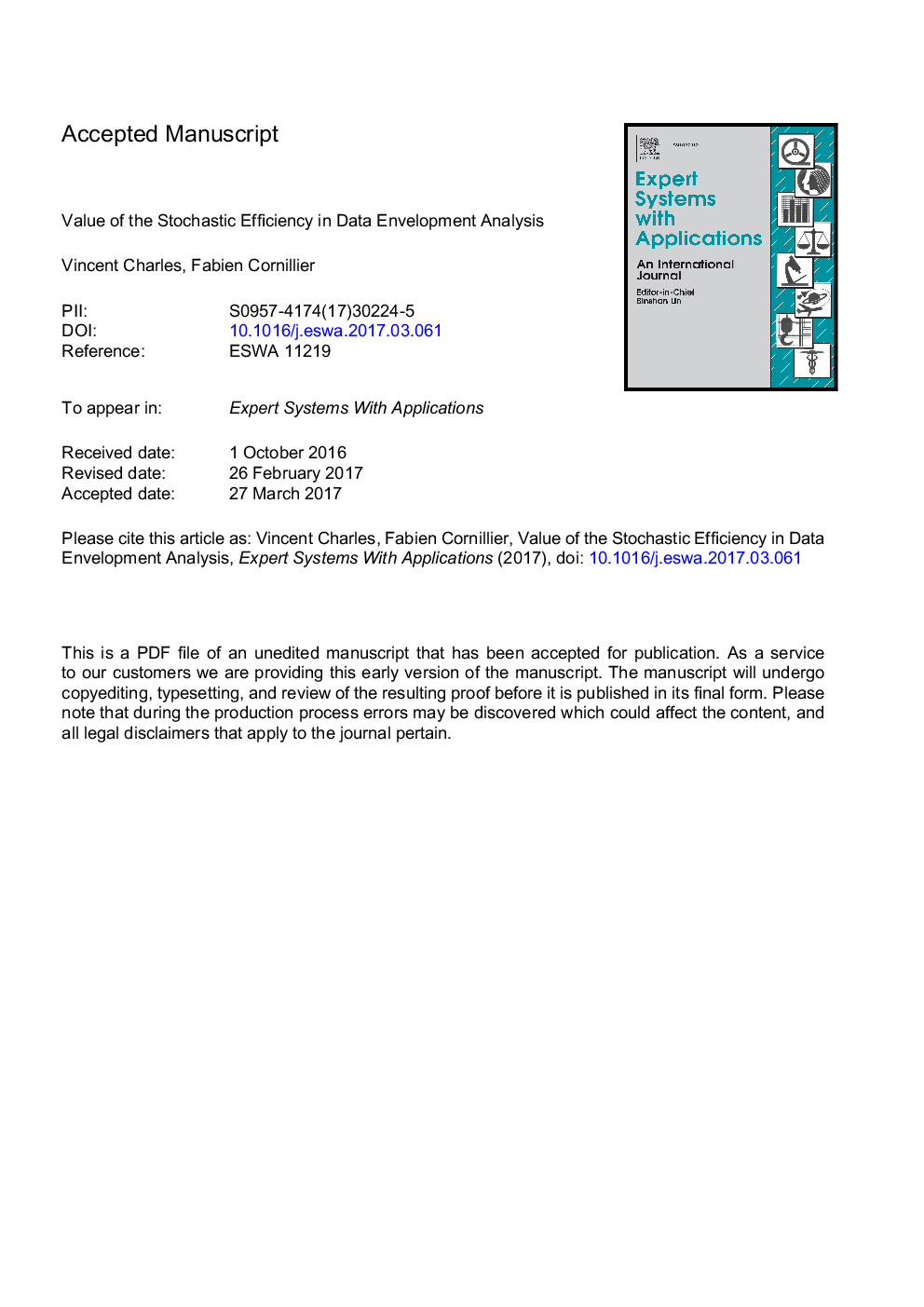| Article ID | Journal | Published Year | Pages | File Type |
|---|---|---|---|---|
| 4943366 | Expert Systems with Applications | 2017 | 24 Pages |
Abstract
This article examines the potential benefits of solving a stochastic DEA model over solving a deterministic DEA model. It demonstrates that wrong decisions could be made whenever a possible stochastic DEA problem is solved when the stochastic information is either unobserved or limited to a measure of central tendency. We propose two linear models: a semi-stochastic model where the inputs of the DMU of interest are treated as random while the inputs of the other DMUs are frozen at their expected values, and a stochastic model where the inputs of all of the DMUs are treated as random. These two models can be used with any empirical distribution in a Monte Carlo sampling approach. We also define the value of the stochastic efficiency (or semi-stochastic efficiency) and the expected value of the efficiency.
Related Topics
Physical Sciences and Engineering
Computer Science
Artificial Intelligence
Authors
Vincent Charles, Fabien Cornillier,
